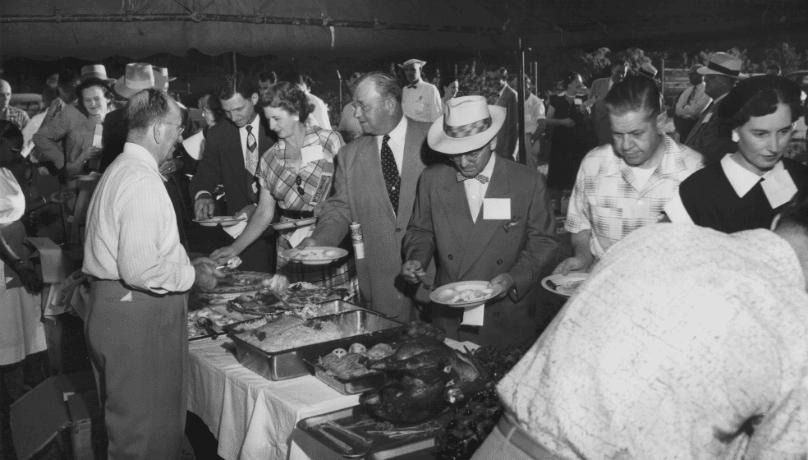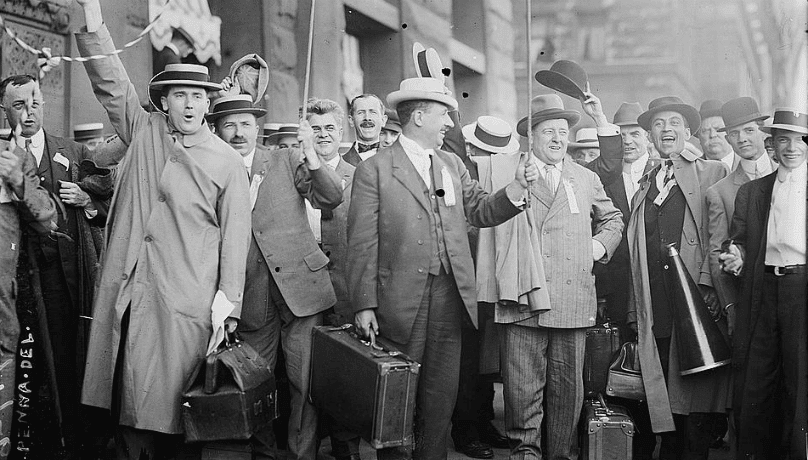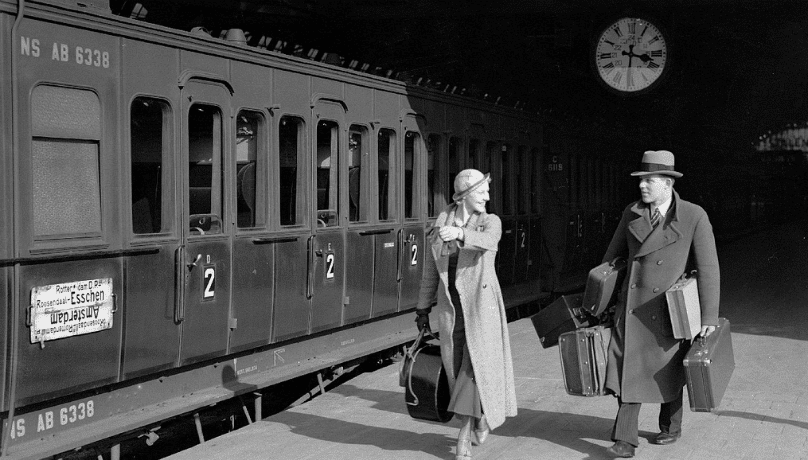Planning an International Conference
With international collaboration becoming more common, many event planners will be expected to organise at least one international event during their career.
People attend conferences because they want to learn and network, but those that travel to international conferences also do so for the experience. For this reason, multinational attendees often have higher expectations of the event itself.
This guide looks at the best ways to boost attendance from across the globe and the main considerations that need to be managed during the event planning stage.
How to plan an international conference
As with any event, planning an international conference takes a lot of time and hard work. There’s a lot to remember and keep track of as your planning progresses. We’ll break down each stage and key consideration below. If you’re looking for a particular section, click on one of the following links:
- Start promoting as soon as you can
- Carefully pick your speakers
- Promote the international aspect of your conference
- Make the schedule worth their while
- Cross-promote channels and events
- Don’t send blanket email invites
- Choosing your venue
- Catering
- Decorating the venue
- Language and translations
- Sending information before the event
- Be accommodating
Ways to boost attendance
Having multinational attendees is a great selling point for your event. It provides delegates the opportunity to network with experts outside of their normal circles. Here are our tips on attracting the right people from overseas and boosting ticket sales:
Start promoting as soon as you can
Every event professional knows that the sooner you start organising an event the better. This is particularly true when organising international events. With so much to consider, we recommend starting planning as early as 18 months before the event itself.
An online strategy should be included in this. For example, engaging content that is displayed on the website or sent by email will benefit attendees coming from overseas. This doesn’t have to be event-focused; it could be as simple as travel tips or popular things to do in the surrounding area.
Pick your speakers carefully
Event speakers must be of the highest calibre to attract attendees from abroad. Look at market trends in your target countries and find related topics that would interest a wide number of attendees. You should also consider an international speaker -especially one that is very well-known within the field. If budget is a constraint, think about the impact that the speaker would have on your audience rather than how well known they are.
Promote the international aspect
Make sure you promote the fact that your conference or event is multinational. It’s a great selling point and also a compelling nudge for international delegates debating whether or not to attend.
Make the schedule worth their while
Think about why people would attend an international conference overseas and include this within your marketing. At the very least, ensure there are lots of different seminar streams to choose from, dedicated networking time and scheduled pre or post-event drinks.
Cross-promote other events
Link up with another international event and cross-promote each other’s events. It’s a great way to reach the right audience, as well as experience an international conference from the perspective of an attendee.
Don’t send blanket email invites
Data is your most valuable tool, so treat it well. Segment your data lists and speak to different countries specifically. If possible, include some information in their native language.
Things to consider when hosting events with international attendees
When it comes to planning events targeted towards attendees from overseas, there are a number of considerations that you need to take into account, many of which you may not have thought of.
Venue
It goes without saying that the event venue should be easily accessible from major transport links, such as train stations and airports. This is a major consideration for all events but particularly for international delegates.
Ensure the venue has enough space for your scheduled talks, as well as breakout spaces for networking during breaks. You also want to ensure there is a designated space for people to observe any religious practices.
Catering
The demographics of your attendees are a key consideration for your event catering. Your conference is welcoming people from a variety of backgrounds. For example, some may not eat meat dairy, or need to have their food prepared in a certain way. You must make sure all attendees receive food and drink that they can enjoy.
Buffets are recommended for international events so that attendees can pick and choose what they want to eat. Because of this, everything needs to be clearly labelled and catering staff should be on hand to answer any questions.
At 20 Bedford Way, we’re proud of our sustainable catering options, which put meat and fish in the backseat (if you wish). Our predominantly vegetarian and vegan menus are tailored to your conference, from bountiful buffets and BBQs to plentiful picnics, we can provide mouthwatering food that’s inclusive of all dietary requirements.

Dollinger Steel Fiftieth Anniversary Guests in Food Line via Flickr
Décor
The key with event decor is to keep it simple. Use seating, lighting and branded visuals to decorate the event space rather than props and accessories.
Brady Miller warns, “Many nationalities have particular affiliations with certain flowers. Chrysanthemums are a good example. Depending on where you are in the world, these flowers could be associated either with happiness or nobility or could be associated almost exclusively with death or funerals (many places in Europe). Something as simple as a white lily will have hugely different meanings with different audiences.”
Language and translation
Although English is the usual common language for international events and conferences, it is important that multilingual translators are on hand to ensure that all attendees get the most from the conference. Arrange for translators to be stationed at identifiable points throughout the venue such as the foyer, breakout space and the entrances to large seminar rooms.
When it comes to signage, consider the most common term for the area. For example, signs for the toilet should say WC as this is more well-known across countries.
Pre-event info
Your conference starts long before the day itself. As tickets are purchased and the countdown begins, send out key information that will help attendees prepare for their day and find their way there. This can be via email, post or your social media channels. If you have time and budget, we’d recommend doing at least two of these.
Key information includes:
– A welcome letter – in a few of the major languages that will be attending would be comforting to your guests
– How to get to the venue from different places
– Recommended places to stay – you could even negotiate a reduced room rate at a nearby hotel
– Include nearby attractions that attendees may wish to visit during their stay
– Catering information – if you’re not providing food at your event, where can attendees go if they’re not familiar with the area? Make sure you give them enough time during the break to walk there and back.
Scheduling
Planning an international conference schedule is an art. As previously discussed, you need to ensure that there are different seminar streams for attendees. This ensures that they have access to a wide range of information throughout the day.
Ensure there is a good mix between conference talks and networking opportunities. This will give attendees the golden opportunity to meet those outside their normal circles, as well as give them the break they need. You can use breakout rooms for this.
If your event takes place over a number of days, ensure that there is time for international attendees to explore the city they are visiting. Remember, attending an event is as much about the experience of the city as the conference itself.
Be accommodating
If you know that some attendees have cultural requirements, such as prayer times or religious holidays, accommodate their needs into your schedule. There’s no point scheduling the conference on Whit Monday when many Christian countries observe a bank holiday.
Supplies
We all forget things and if your conference is only one or two days long, it’s likely that attendees will only bring hand luggage. This means that some of the essentials may have been left behind. Offer a stock of pens, pencils and notepads on arrival. Even better, consider giving away these items in branded goodie bags.

Pennsylvania Delegation via Flickr
Celebrate international attendees
Celebrate your attendees and make this a focus of your event. Mention those that have travelled and thank them in the conference’s opening address. You could even have a board with a map so people can pin where they have come from for the event.
Ultimately, the key to organising international events is to understand your audience. Do some research into cultural practices from different countries and religions. And always do your best with the time and budget you have been given by your client.
International conference planning with 20 Bedford Way
20 Bedford Way is an academic conference venue in Bloomsbury, Central London. The venue is close to major tourist attractions such as the British Museum, British Library and Oxford Street. It also benefits from unrivalled transport links, with major train stations and airports.
With flexible catering, spacious rooms and numerous accommodation options nearby, 20 Bedford Way is the ideal venue for your next international conference. If you are interested in holding a conference in Bloomsbury contact us on 020 7612 6143 or email us.
Main image: Traveling by train, Nationaal Archief via Flickr




